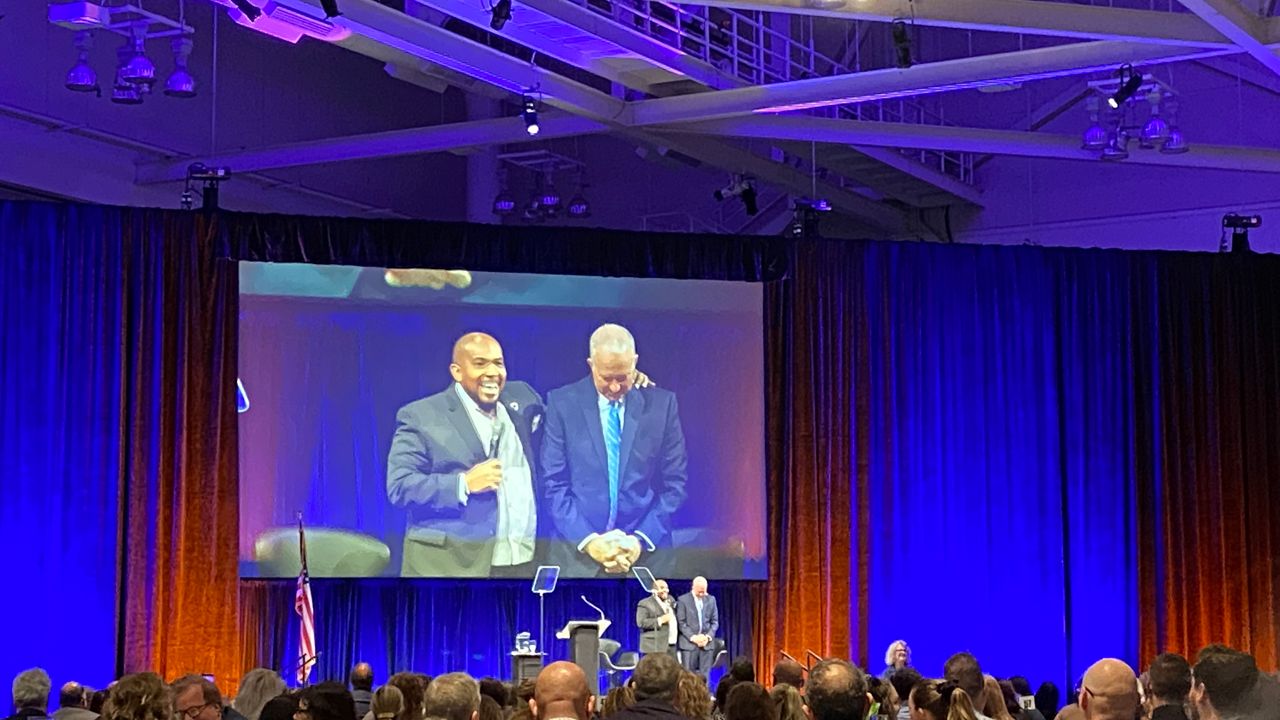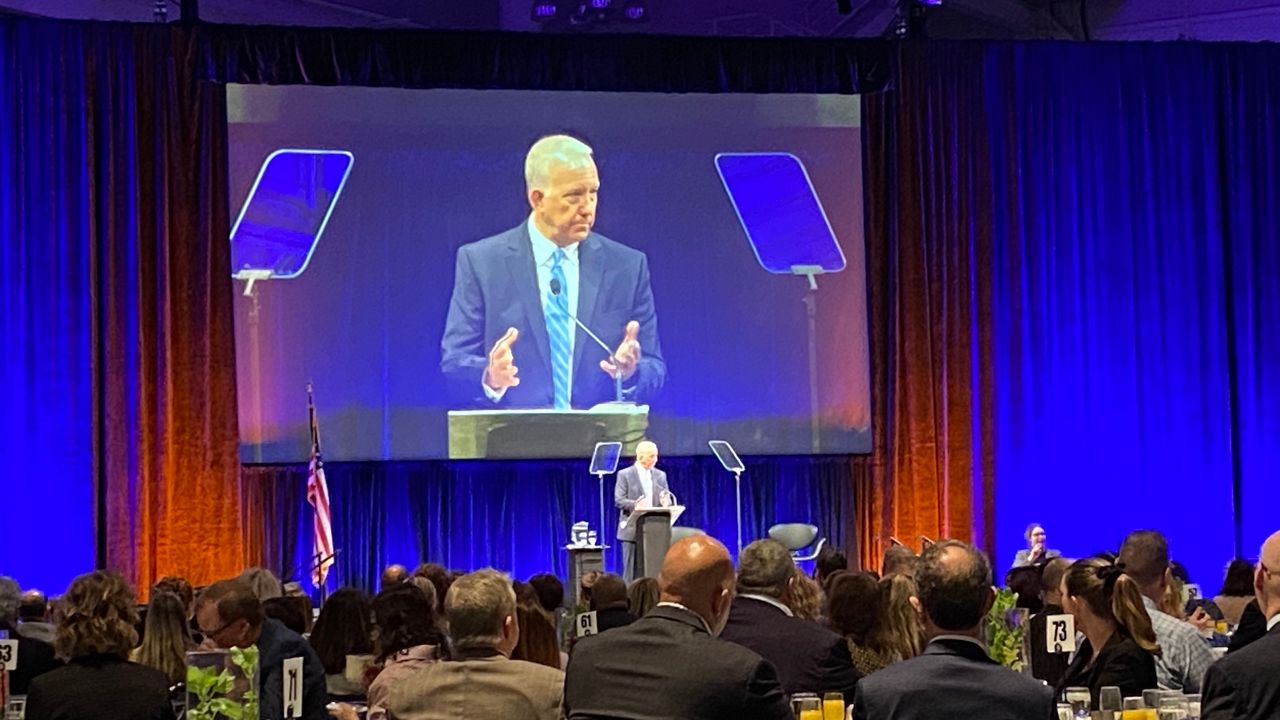AKRON, Ohio — In his final state of the city address, delivered to a full house at the John S. Knight Center on Wednesday, Mayor Dan Horrigan said he would not spend time recounting his administration's accomplishments.
"What I’ve come to learn is that no one gets to write their own legacy, as hard as they might try," he said.
Instead, the mayor chose to talk about what he knew coming into office, what he learned over the past seven years and what he leaves as he moves into the next phase of his career.
Horrigan was introduced by Kemp Boyd, a pastor and executive director of Love Akron, a nonprofit working to unify the Akron community.
Boyd also is a member of the recently created Citizen Police Oversight Board, which voters made part of the city charter last November after the fatal shooting by police of Jayland Walker, a young, unarmed Black man, last June. The relationship between the community and the police and city administration has been tense since the shooting, while the city awaits a decision by the Bureau of Criminal Investigation and Grand Jury.
Horrigan spoke about public safety in light of the shooting and increasing gun violence in Akron. He also talked about housing, which has drawn the ire of local groups over some new developments.
A former high school teacher and life-long Akron resident, Horrigan told the crowd he ran for mayor with no intention of climbing to a higher office because he believed his ideas and skill set made him the best person to be Akron's mayor, a role he has called "an honor of a lifetime" many times during his tenure.
"But the fantasy of public service is quickly eclipsed by the reality that this position will ask everything of you," he said. “You’ll realize that there will never be a time when you can get everyone to compromise just a little for the greater good, and there are times when you will walk alone."
Coming into office on the heels of Don Plusquellic, Akron's mayor for nearly three decades, Horrigan said he heeded good, early advice — find out where the city stands on matters of finance, housing, safety and other key areas to better understand what the city needed.
To that end, in his first year in office Horrigan, launched his Blue-Ribbon Task Force to look into those areas, ultimately receiving "a document that basically recommended a complete overhaul of city government," he said.
Rising to the top was safety, he said, which has remained a top priority throughout his tenure.

Part of the remedy was Issue 4, approved by voters in 2017, which raised the city income tax to help fund Akron's understaffed police and fire departments, and replace outdated equipment.
But safety requires more, he said, and must begin at home with families and their children because it can't be left to schools and law enforcement to solve.
"Violence is a complex problem with a myriad of social determinants working together to create the conditions in which people feel violence is the only solution or way of life," Horrigan said. "Violence is simply a symptom of systemic inequities. And just like medicine, only treating the symptom will never cure the disease."
Horrigan pointed to the police department, saying the Akron community needs to evolve to strengthen police-community relations. Diversification of the city workforce, including the police department, is an essential component of gaining the trust of people who feel marginalized, he said.
Since the Walker shooting, Horrigan said many community leaders have spoken with him about how quickly trust can be shattered and how much longer it takes to repair.
With the results of BCI's investigation expected in the coming weeks, trust will be essential, Horrigan said.
"We have to make sure we have the infrastructure in place to deal with both trauma and healing," he said. "I encourage everyone here today to take that same message to your own communities and repeat it in your own conversations in the days to come."
As for housing, Horrigan said the Blue-Ribbon Task Force concluded that the city needed more housing "at all price points," as more houses were built during the Great Depression in Akron than were being built when Horrigan took office.
Since then, new residential construction has increased from 15 houses per year to 1,500 houses, which are either built or in the design process, he said.
With a mayoral primary less than two months away, Horrigan said he hopes the next mayor understands the value in housing and the work needed to keep up the momentum.
"Stagnation leads to decay and decay leads to decline," he said. "In order to move Akron forward, housing must continue to be a foundational piece of Akron’s future."
The mayor also offered advice to whoever succeeds him, saying there's a difference between management and leadership.
"Leaders have to lead, and that will mean you won’t be able to please everyone in the process," he said. "But this role is not about pleasing the loudest voices in the room — it is about doing the right thing for all of Akron."
That means good governance, he said, which is essentially being accountable to the people you serve, being transparent and being a servant leader.
The next Akron mayor will be sworn in in early January 2024.




